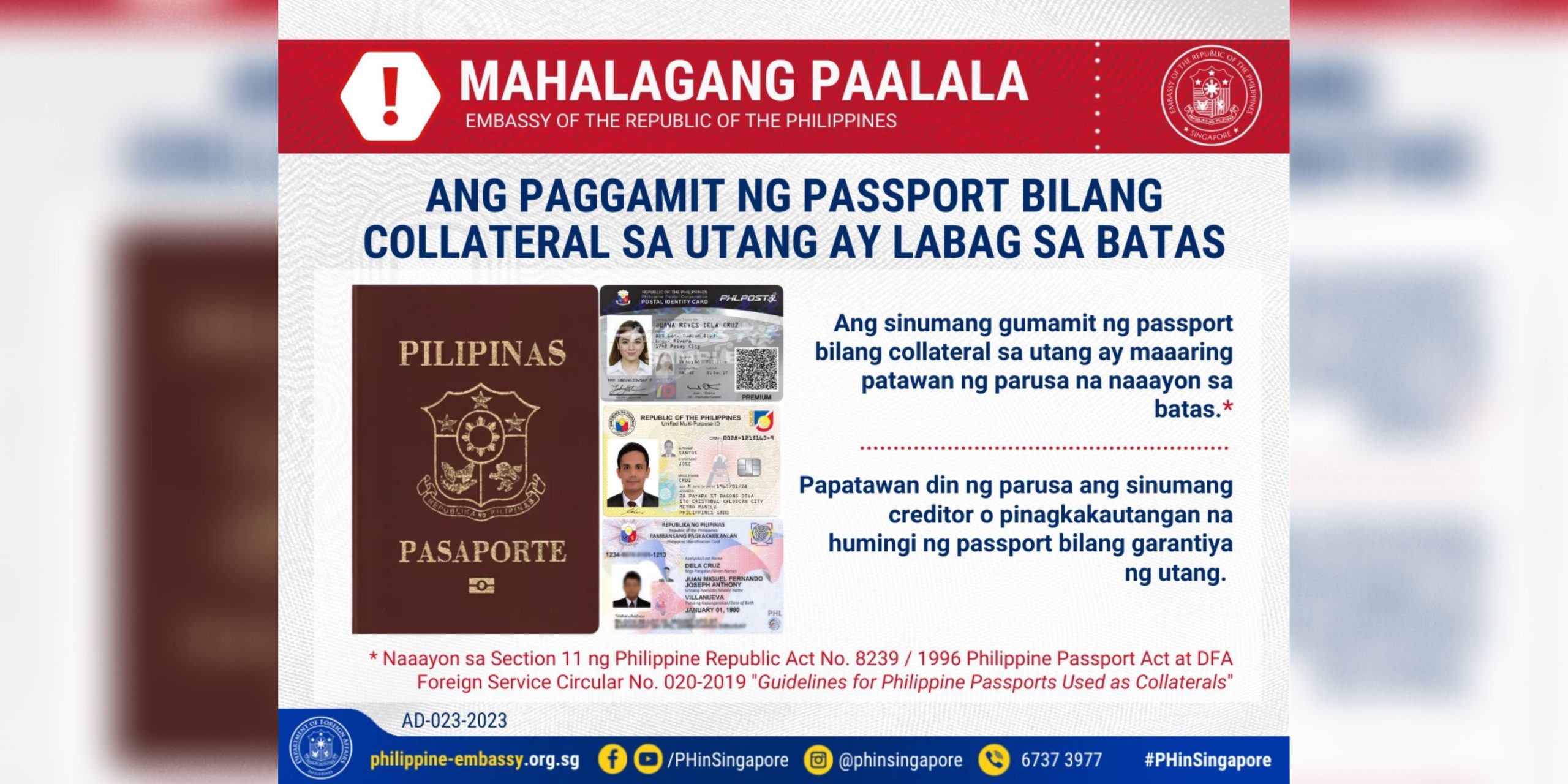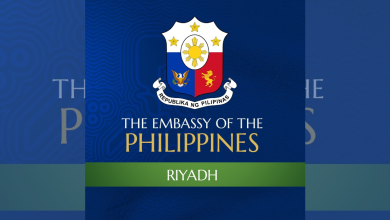The Philippine Embassy in Singapore has issued a stern advisory cautioning Filipinos against using their passports or any other identification cards as loan collateral, highlighting that such practices are illegal under Philippine law.
The embassy’s announcement comes as a response to the increasing prevalence of borrowers offering their passports as assets to lenders, a risky arrangement that could lead to severe consequences for both parties involved.
While it is common for lenders or banks to accept collateral to ensure loan repayment, authorities are urging the public to exercise caution when dealing with loan sharks or informal lenders who engage in exploitative or illicit practices.
The embassy, in its advisory released on Tuesday evening, warned that penalties would be imposed on individuals found guilty of using their Philippine passports as loan collateral or to settle outstanding debts, in accordance with the rules and regulations established by the Philippine government.
Moreover, the embassy emphasized that creditors demanding the surrender of a Philippine passport as a guarantee for a loan would also face legal consequences. Section 11 of the Philippine Passport Act of 1996 explicitly outlines the legal status of the passport, stating that it is the property of the government, and the passport holder is merely a “mere possessor.” The law further stipulates that the passport should not be surrendered to any person or entity other than the government or its representatives.
In addition to the provisions of the Passport Act, the embassy reminded Filipinos that the rules laid out in DFA Foreign Service Circular No. 020-2019, known as the “Guidelines for Philippine Passports Used as Collaterals,” would also be enforced. These guidelines serve as a supplementary measure to ensure the proper use and protection of passports in financial transactions.




